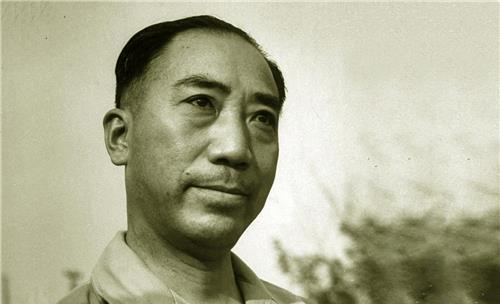In the ruling clique of the Kuomintang, the military unification is a very special organization, and as a secret service organ of the Kuomintang, the military unification has vigorously suppressed revolutionary activities, and on the other hand, it has made outstanding contributions in the War of Resistance Against Japan.
The predecessor of the military command was an organization called the Revival Society, which was established after the "918" Incident in 1931, and the core members at that time were the "Thirteen taibao" composed of Whampoa soldiers He Zhihan, Dai Kasa, Zheng Jiemin, Kang Ze and others.

After the outbreak of the War of Resistance Against Japanese Aggression, the Revival Society was reorganized into the "Bureau of Investigation and Statistics of the Military Commission of the National Government", referred to as "Military Unification", and the following year, the "Investigation and Statistics Bureau of the Central Executive Committee of the Kuomintang" was established from the first division of the Military Unification Department, which was later a major opponent of the Military Unification in the Kuomintang.
Among the high-ranking officers in the military command, although Shen Drunk was not very old, but the qualifications were not many people who could match his shoulders, and the strength of his ability was also rare in the military command, coupled with the fact that Shen Drunk was astute in his mind, especially good at handling interpersonal relations, and stretched out his hands to wear a heavy hand, so he later became the chief of the General Affairs Department of the Military Command Bureau, becoming the youngest major general in the Kuomintang, when Shen Drunk was only 28 years old.
The reason why Shen Drunk's qualifications are old is because it joined the Revival Society in the second year of its establishment, and it was Shen Drunk's brother-in-law Yu Lexing who introduced Shen Drunk to join the Revival Society.
Yu Lexing was originally an early member of the Communist Party, serving as the general secretary of the Communist Party branch of the Ye Ting Independent Regiment during the Northern Expedition, but later after the failure of the Nanchang Uprising, this person believed that China's revolutionary future was dark and broke away from the organization, became a spy, and trained many backbone members of the military command.
However, although Yu Lexing was the elder of the military command, this person was not the most evil, in fact, he did not have any blood debts on his hands, and he also participated in the assassination of Wang Jingwei.
After the end of the War of Resistance Against Japan, the situation of the civil war took a sharp turn for the worse, the defeat of the Kuomintang was still a foregone conclusion, after the founding of China, the People's Liberation Army began to march to the southwest, the then King of Yunnan Luhan decided to revolt, and arrested most of the spies in Yunnan Province at that time, including Shen Drun, Xu Yuanju, and Zhou Yanghao.
The three of them had the title of a military commander and a swordsman, but compared to Zhou Yanghao and Xu Yuanju, who were extremely evil, Shen Drunk was obviously a little depressed.
Zhou and Xu were notoriously stubborn agents, but Shen Drunk was aware of current affairs and knew how to advance and retreat, and when Lu Han rebelled, he detained Shen Drunk, and Shen Drunk decided to cooperate with the Lu Han Uprising, ordered all his agents to lay down their weapons, and signed a letter on Lu Han's uprising telegram, which was actually a standard uprising general.
However, Lu Han did not understand these things at that time, so he was transferred as a prisoner of war to a prisoner of war camp in Kunming, and later he was escorted to Gongdelin for reform together with Zhou Yanghao, Xu Yuanju and other senior officials of the military command.
Unlike the many secret service leaders who were reformed together in Gongdelin, Shen's transformation was very positive, and among the second batch of war criminals pardoned by Gongde, he was the only high-ranking military commander, while Zhou Yanghao and Xu Yuanju, one of whom left Gongdelin in the last batch of unconditional amnesty in 1975, and the other died directly in it.
After Shen Drunk was pardoned, he became the commissioner of literature and history of the Cultural and Historical Information Committee of the Chinese People's Political Consultative Conference along with Du Yuming, Wang Yaowu, and the last emperor, Ai Xinjueluo Puyi. Later, he was shocked, causing him to enter the palace twice, and the second time he was imprisoned as a prisoner of war camp as a war meal.
However, Qian Wen did not say that Shen Drunk had participated in the Luhan Uprising, originally an uprising general, but later became the most "depressed" prisoner of war in gongdelin, and this matter finally came to an end in 1980.
At that time, after investigation, Shen Drun did issue a personal order for his agents to cooperate with the uprising, and he also signed the pain point of the uprising, so his identity became an uprising general from a war criminal, and he enjoyed the treatment of deputy minister, and also became a member of the Fifth, Sixth, and Seventh National Committee of the Chinese People's Political Consultative Conference.
On March 18, 1996, Shen Died of Lung Cancer in Beijing at the age of 82.